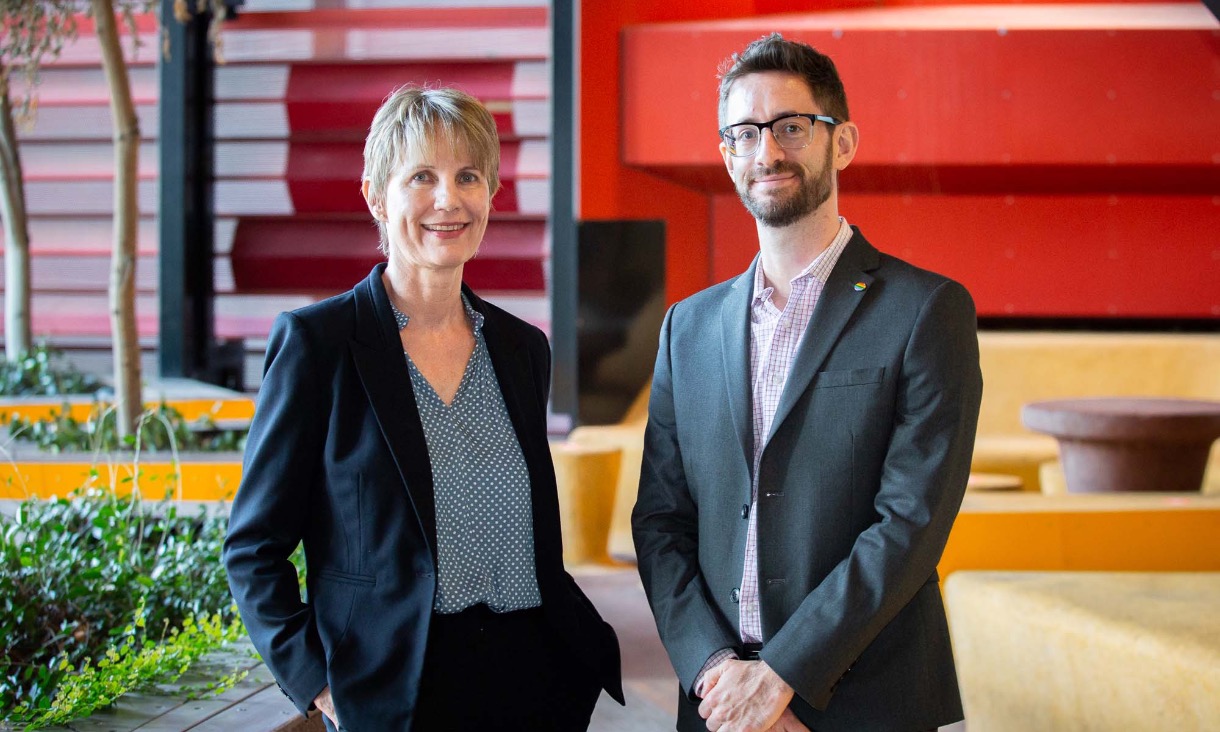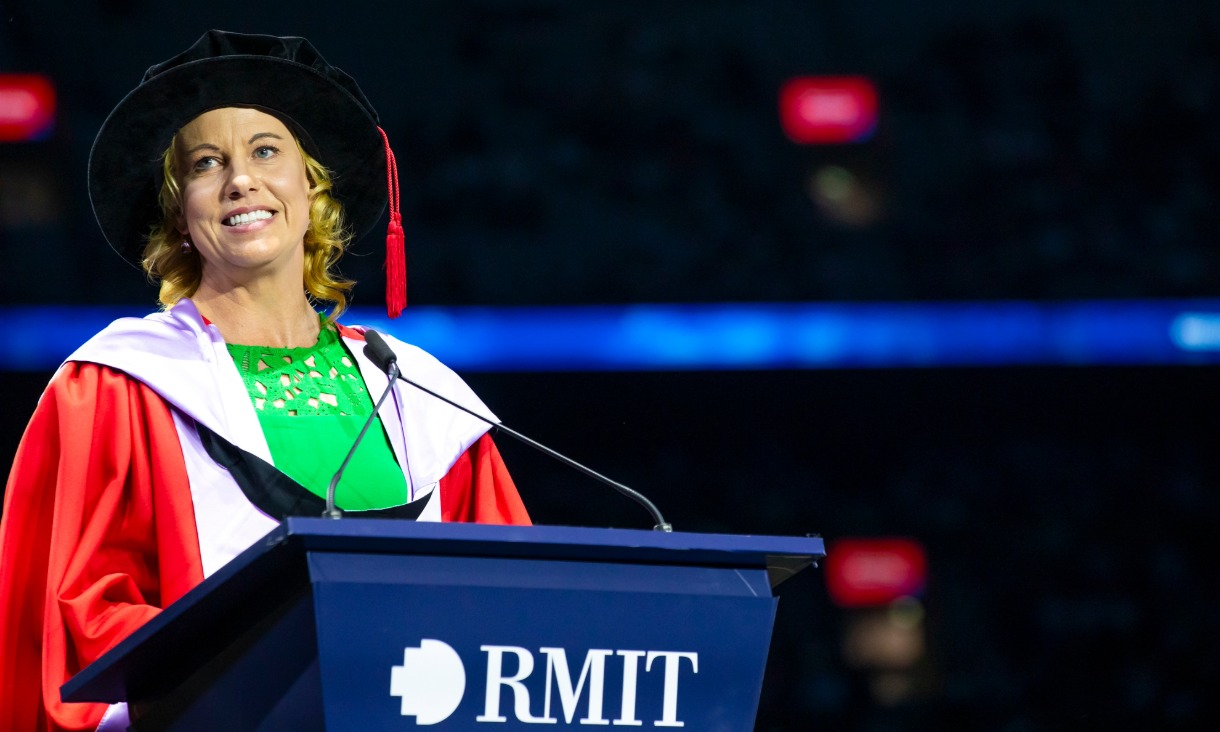Business
Andrew Linden (0401 086 326 or andrew.linden@rmit.edu.au)
Topics: Corporate governance, business ethics, CSR, corporate strategy, strategic communication, Germany and EU
“Notwithstanding the Australian Government’s announced relaxations there will be no snap-back. Unfortunately, the economic impact of the pandemic will be deep and protracted even if the spread of the virus is suppressed.
“Recovery is likely to be slow because of the problems that were already evident in the economy before the onset of the pandemic such as corporate debt, lack of re-investment, wage stagnation, rising precarity and declining productivity.
“Other latent issues such as very high levels of consumer debt and questionable credit quality of bank loan books, highlighted in the Banking Royal Commission, is of major concern.
“Bank decisions to defer loan payments and grant credit card interest rate holidays will only delay a wave of defaults.
“There is a real danger a second-wave of infections will amplify the economic impacts.
“In terms of the way forward, corporate governance reforms would over time see a change in corporate strategy that would help address the pre-existing systemic problems.
“Unfortunately, the Commonwealth appears to be pursuing a future reform agenda (red tape cutting, delays to Banking Royal Commission recommendations, IR changes) that will only exacerbate the existing problems outlined above.”
Andrew Linden is a PhD researcher on German corporate governance and a sessional Lecturer in RMIT's School of Management who teaches corporate governance, global business and business communication. He is a regular media commentator on corporate governance and the Banking Royal Commission.
Commercial property markets
Dr Judith Callanan (0448 049 186 or Judith.callanan@rmit.edu.au)
Topics: Property markets, property development, commercial property management, valuation and investment
“Even in times of great uncertainty, there is a pressing need for valuers and property managers to play their role in the market driven correction.
“Valuers, and asset managers must help to keep residential and commercial real estate markets rational, so that assets are not discounted at extraordinarily low prices.
“Valuers are shock absorbers, unrattled by once in a lifetime events. With a moratorium on rents, valuers will be required to help broker catch up rents and be involved with the team of professionals who negotiate new pathways from breach loan covenants, particularly in the commercial sector, where, pre-COVID-19 property valuations had climbed high.
“Building defects, and safety concerns from flammable cladding continue to threaten high rise residential and commercial buildings in Melbourne.
“With the doors of the Victorian Civil and Administrative Tribunal shut, there will be a significant backlog, with a fresh need to value these buildings at the time the legal cases do get to be heard, with delays expected of up to two-years.
“Buildings riddled with defects must be properly managed and maintained by professional property managers, or face grave safety issues, and ultimately, financial pain for individual lot owners, as well as institutional investors.
“Asset managers, working alongside valuers are important players in the property market, to ensure Melbourne’s world class building stock continues to be attractive for local and global investors.
“Global pensions funds have been hit hard, and continued trust in Melbourne high rise building assets will be essential in the recovery period.”
Dr Judith Callanan is Associate Dean, Property and Valuation in the School of Property, Construction & Project Management (PCPM) at RMIT University. Her research focuses on property development and commercial asset management.
Economy
Emeritus Professor David Hayward (0416 174 833 or david.hayward@rmit.edu.au)
Topics: Australian economy, Victorian economy, social service sector, social policy, employment
“The Government’s welcome decision to begin opening our society and economy raises important questions about whether we should try to go back to where we were prior to the virus or instead pursue a different direction?
“Expect infrastructure to be high on the list of priorities, even though population growth will slow to a trickle.
“A better idea would be to pump money into our care economy — already the biggest employer in the land — by boosting jobs, pay, conditions, and training in aged care, disability, child care, family violence, health care and social housing.
“European research shows a much higher payback for each dollar spent on care compared to infrastructure — in the order of five jobs for every one job.
“A post coronavirus world will put a very high value on Governments getting this right.
“While everyone’s attention has been fixed on the cost of the coronavirus to federal finances, the states have also taken a very big hit.
“Previously big debts and deficits have meant political tragedy for incumbent governments.
“Could this time be different, or should we expect the same? Are we in for unpopular, swinging cuts and tax hikes? Or might things play out rather differently this time round?”
Emeritus Professor David Hayward is an economist and was, until recently, the Director of the Victorian Council of Social Service RMIT Future Social Service Institute. Before that, he was the Dean of RMIT’s School of Global, Urban and Social Studies for seven years. He has undertaken extensive research around the funding of social services and social policy and is a regular media commentator on budgets and politics.
Sport and marketing
Associate Professor Con Stavros (0411 231 371 or con.stavros@rmit.edu.au)
Topics: marketing, branding and promotion, consumption experience, sponsorship, fan behaviour
“Sport restarts are now being discussed, an inevitable and necessary marker of a return to normality for some, a too sudden rush into the unknown for others.
“Whichever perspective you take, the road back for sport is going to be fraught with numerous marketing challenges, some of which may be insurmountable, potentially changing forever the landscape of the pastimes we have come to love.
“Sport has not been missed as much as many sport administrators may have thought. They had once, understandably, imagined fervent demand from fans would provide them with the leverage to navigate a return.
“The absence of that push is palpable, with fans consumed by a fragile uncertainty and seemingly not yet ready for the ‘escape’ that sport provides, no matter how logical one would have thought that connection would be.
“There are two certainties. One is that sport in front of passionate crowds is not on the agenda anytime soon. The price sport will pay is the very absence of what once fuelled them, adoration from the masses who huddled for a glimpse of their heroes.
“The second certainty is that what now fuels sports, the chequebooks of media conglomerates, is what will hasten the return.
“The challenge for sports when they return, including our parochial interests in the NRL and AFL, is creating a semblance of normality to their offering.”
Associate Professor Con Stavros is a marketing expert in the School of Economics, Finance and Marketing at RMIT. He is a regular media commentator on all things marketing and is particularly interested in the intersection between technology and consumption.
***
For general media enquiries, please contact RMIT: 0439 704 077 or news@rmit.edu.au








